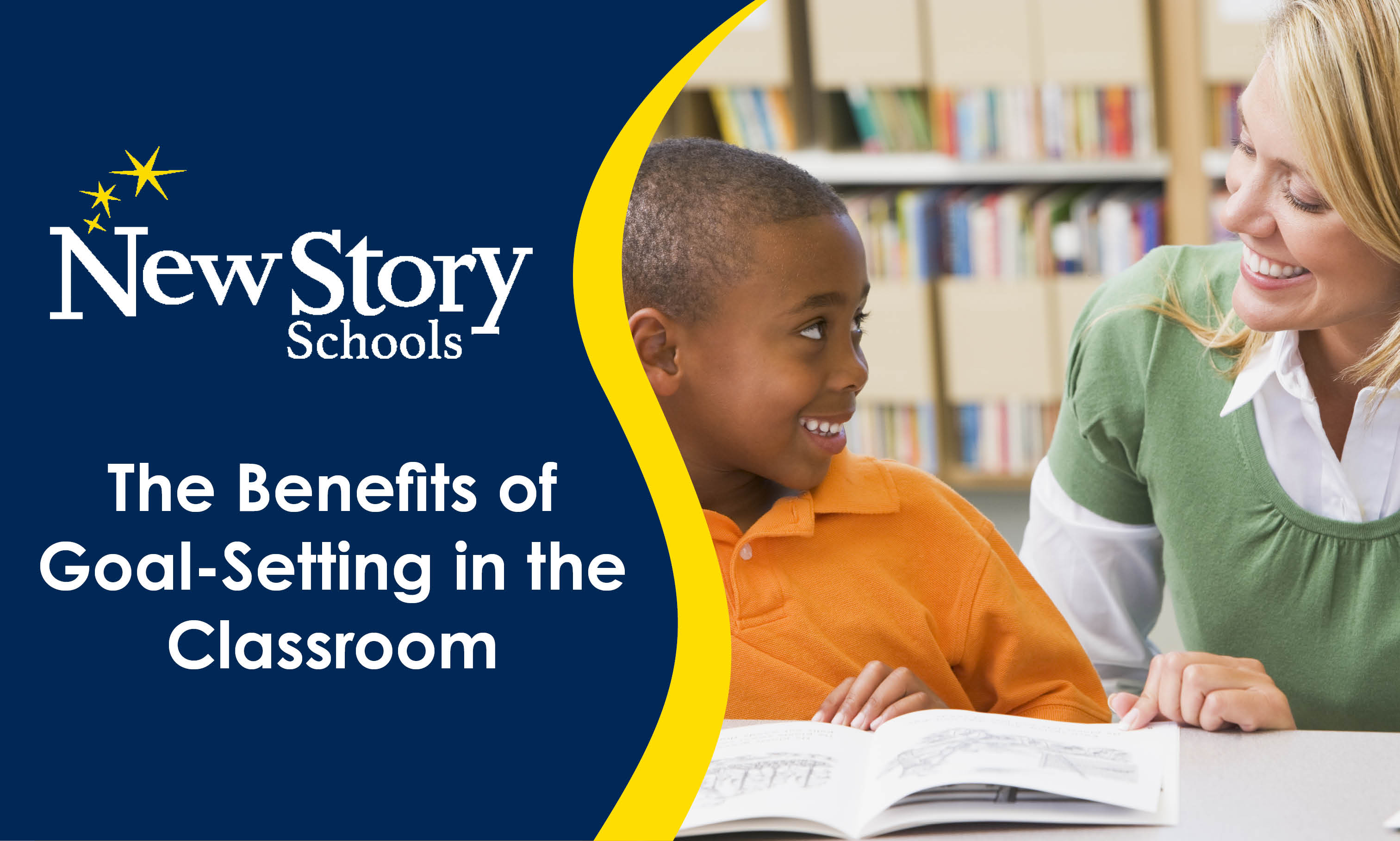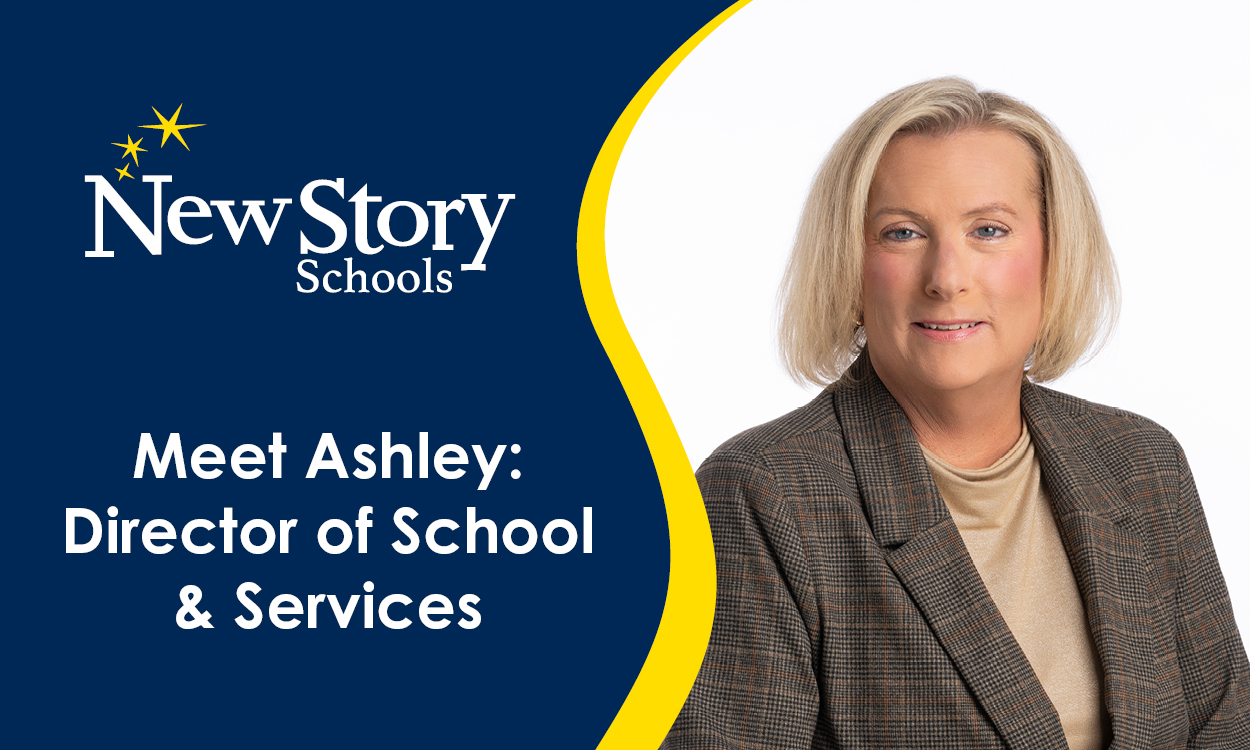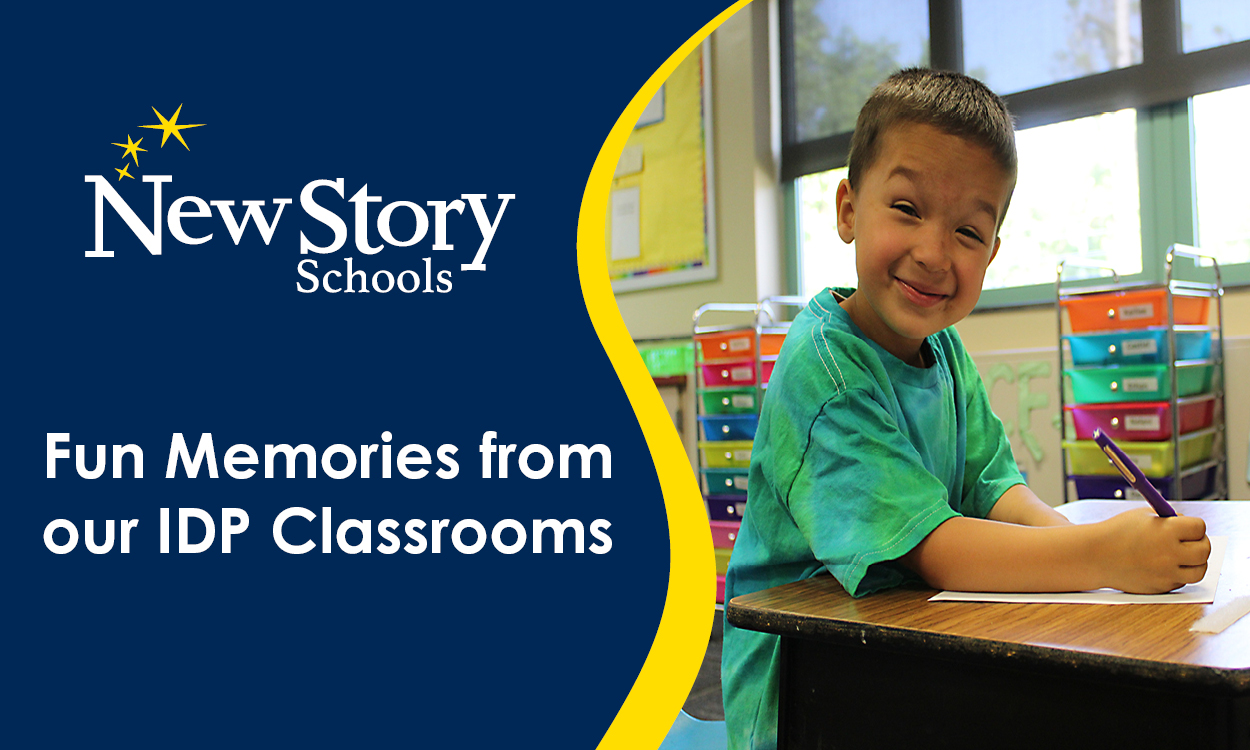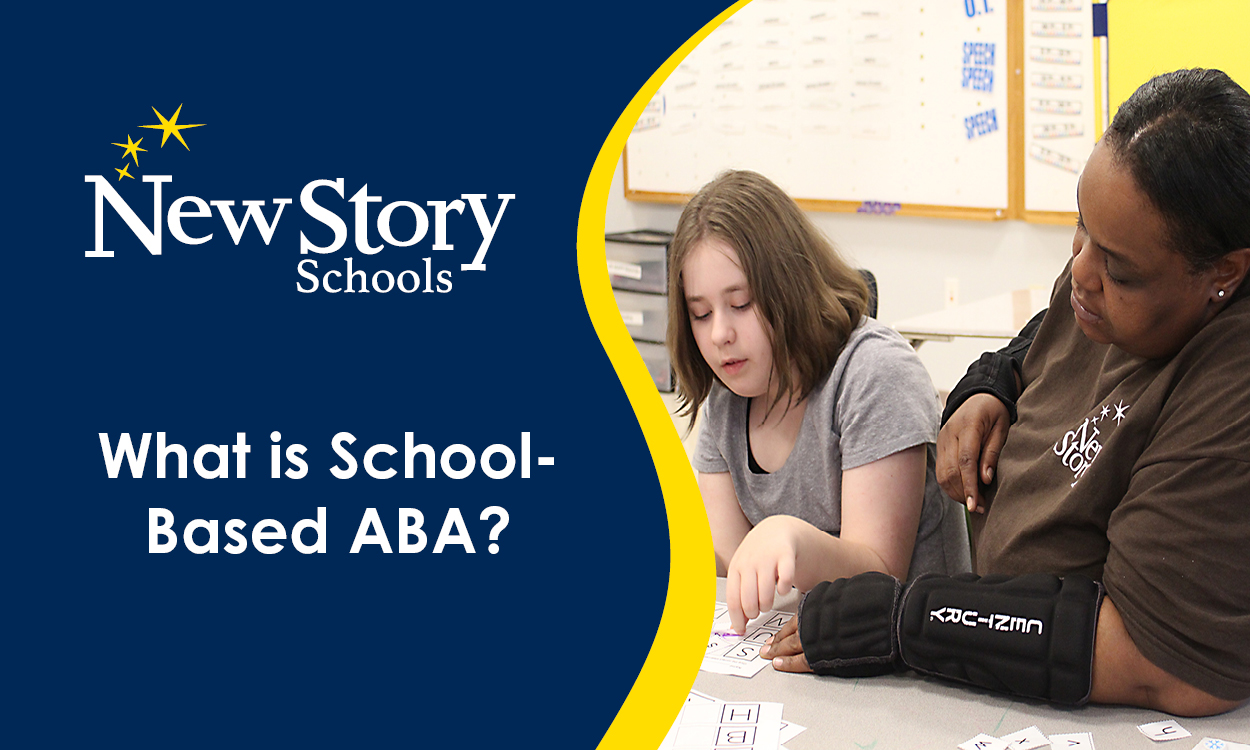The Benefits of Goal-Setting in the Classroom
Posted: October 05, 2022 | Written By: Kara Kessel, MS, LBS, BCBA | Category: Support for Educators

by: Kara Kessel, BCBA
Clinical Director, NSS New Cumberland
Multi-Tiered System of Supports and STARS Behavior Expectations
New Story Schools utilizes a foundational approach involving a Multi-tiered System of Supports. In this approach, each student is classified by the level of support they require to adequately function and achieve goals both academically and behaviorally. Students work with their support staff to achieve goals they set based on the STARS Behavior Expectations. These are as follows:
- Set Goals – students identify a personal goal each day
- Team Player – work together and help peers succeed
- Accountable – take responsibility for your actions
- Respectful – use kind words, appropriate language, follow directions and honor the privacy of others
- Safe – be aware of personal space, keep hands and feet to yourself, use equipment safely
Setting and Achieving Daily Goals
At the beginning of each day, students will make a goal with the assistance of a teacher or staff member, if support is required. Goals should be based around areas in the student’s individualized education plan. These areas are individualized skill areas that require attention or improvement, encouraging them to ease out of their comfort zone to develop a higher skill set. Goals should be measurable and reasonable, not easy or a means to “check off a box.”
Goal-setting gives the student a trajectory for the day to work towards and to feel good about their accomplishments. Staff will check in with the student to see how they are progressing towards their goal. The work to meet these self-identified goals can sometimes require different supports to help students work towards their overall objective. Staff support and mentorship may be provided to aid the student’s goal attainment. For example, Level Two support provides a more intensive, mentor-based support system for the student. in which the student selects a staff member they are most comfortable working with. They will strategize together on how to best set and meet the goal for the day. At the end of the day, staff “check out” with students to see if they achieved their goal for the day.
Meeting goals is cause for celebration for the student and is proof of academic and personal growth. While goals are not always met on a certain day or within a certain timeframe, there are valuable lessons to be learned. An important component of goal-setting is the understanding that each day is a new day and a new chance to make the best decisions throughout the day to achieve goals.
Example of Goal-Setting Process
At a mentor-based support check-in at the start of the school day, a student decides their goal is to stay focused on their own work and needs in the classroom, instead of getting involved with other students. They determine that inserting themselves into areas that do not involve them will take away from their academic work and become a distraction to their education and growth that day. It can also be disrespectful to others in the classroom. This goal strives to help the student remain respectful and safe in the classroom, and to hold themselves accountable for their own actions. This refers back to the STARS behavior expectations.
The staff member helps the student identify ways in which they can work toward their goal. If a distraction occurs in the classroom, instead of getting involved in another student’s situation, this student can focus on following their own schedule and utilize different coping skills. Coping skills in this case might include asking the teacher for a “time away” or to take their work to a different, less distracting space for a period of time. The student might use noise-cancelling headphones to help them focus on their own work as well. These types of skills are crucial in real-world situations, as distractions arise often during a work day or in public.
At the end of the day, the staff member meets with the student to discuss how they feel about the outcome of their goal that day. This opens the door for learning opportunities and celebrations for the student, leaving the student with a means to achieve their goals moving forward, as well as allowing them to feel pride in themselves and their accomplishments.
Want to be notified of new articles and resources from New Story Schools? Submit your email and opt into our newsletter!









